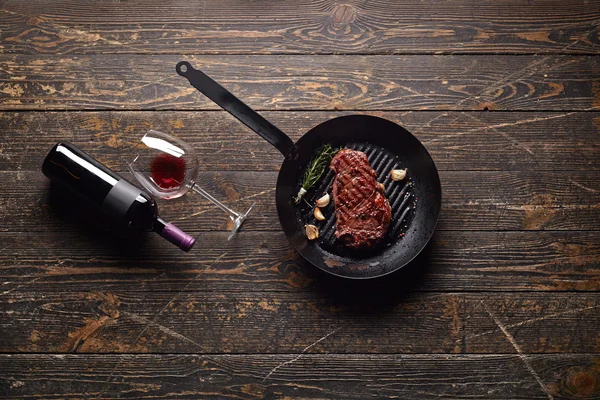Introduction
The use of Alcohol in cooking as an ingredient is used in many recipes. Alcohol in cooking can be used as a flavouring agent, an alternative to salt or sugar and as a preservative. In this article we will look at how alcohol can be used in various types of dishes such as marinades and pickles, sauces and gravies etc.
How to use alcohol in cooking?
Alcohol in cooking and cuisine can be used to add flavour and aroma. can also be used to preserve food, as a solvent or a preservative. Alcohol is sometimes added to foods before they are cooked because it has a strong smell that attracts flies for example. The taste of alcohol is bitter but when mixed with other ingredients it creates a sweet taste which may be preferred by some people over vanilla extract or other natural flavours such as strawberries etc..
Alcohol in cooking and cuisine is used to add flavour and aroma. It can also be used to preserve food, as a solvent or a preservative. Alcohol is sometimes added to foods before they are cooked because it has a strong smell that attracts flies for example.
Using alcohol in marinades and sauces
Alcohol in cooking is used as a solvent for many ingredients, and it helps to extract flavours from herbs and spices. It can also be used to help break down the protein in meat, helping tenderise it.
Alcohol in cookingl can also be used as a marinade for meat or poultry; this process will help tenderise your food while keeping it juicy and flavorful.
When using Alcohol in cooking, it’s important to use the right type of alcohol for the recipe. For example, if a recipe calls for vodka, do not substitute rum or tequila. The flavour will be completely different and may ruin your dish.
There are many reasons why you should consider using alcohol in cooking. First, it’s a great way to add flavour and tenderise your food. Second, it can help preserve foods that would otherwise spoil quickly. Third, it adds calories that will fuel your body so you can keep going strong throughout the day.
Alcohol in cooking gravies and sauces for appetisers, soups and stews
Use of alcohol in cooking can be to add flavour and bring out the best in your recipes. You can use it to deglaze pans, thicken sauces, cook meat and other foods.
Alcohol is often added to marinades before cooking meat or poultry because it helps tenderise tough cuts of meat by breaking down connective tissue while infusing them with moisture. Alcohol also helps seal in juices so that they don’t drain out when you’re cooking something like a steak–the result being juicier meat!
Use of alcohol in cooking is also a great way to add flavour and moisture to your food. It’s especially handy if you’re trying to cut down on fat or calories in your diet. When cooked with wine, for example, chicken breasts will absorb the alcohol but not the fat from the meat.
Alcohol in marinades for meats and poultry
Alcohol is used in marinades to tenderise, preserve and enhance the flavour of meats and poultry. The alcohol acts as a preservative by preventing spoilage bacteria from growing on meat during storage. It also prevents enzymes from breaking down protein, which makes for a more tender product when cooked.
Marinating meat can take anywhere from 15 minutes to 24 hours, depending on how long you want your dish to be edible after cooking (the longer it marinates, the better). After soaking your meat in a mixture of vinegar, salt and other spices such as garlic powder or onion powder for 15 minutes per pound of meat (for example: chicken breasts would soak for 30 minutes), place them into plastic bags before refrigerating overnight so they don’t dry out while waiting around at room temperature during dinner time!
Some people prefer to marinate their meat for longer periods of time, up to 24 hours. This is especially true for beef, which needs a longer period of time in order to tenderise and absorb flavours from the vinegar mixture.

Using it in pickling, curing and preserving vegetables; fruit.
Alcohol is an effective preservative and can be used to preserve food. It acts as a tenderizer and tenderises the meat, making it more flavorful. It is also beneficial to use Alcohol in cooking as it helps prevent bacteria from growing in cooked meats and prevents food from going bad faster. The amount of alcohol used depends on how much you want your dish to taste like beer or wine; some recipes may call for less than you would typically use if you were drinking red wine all night long at home!
The amount of time spent cooking with alcohol will affect how much flavour is left behind after cooking has finished—this can mean that some foods might need additional seasoning before serving them up!
Alcohol is a great way to add flavour to your dishes. It also helps tenderise meat and keep it from spoiling as quickly as it would without alcohol. You can use any kind of wine or beer that you like, but some types may be stronger than others and could change the taste of your dish!
Using alcohol in cooking as a flavouring agent, as an alternative to salt or sugar.
People use alcohol in cooking as a substitute for salt, or to replace sugar in recipes. It’s important to note that alcohol impairs different flavours than other spices or herbs, so it’s best not to use too much of it.
For instance: You might want to use less salt in your cooking because you want the food you’re preparing to taste good on its own without having added flavourings like salt. Similarly, if you’re making an ice cream treat and don’t have enough butter left over from churning out the mixture at home (or don’t want any left over), then go ahead and add some alcohol instead! This will help cut back on calories while still keeping everything tasting great!
Conclusion
It is common practice to use Alcohol in cooking since it is a useful and versatile ingredient that can be used in cooking for a variety of reasons. It is a great addition to marinades and sauces, as well as providing flavour to gravies and other dishes. It’s also useful when making pickles or preserving vegetables because it doesn’t affect the taste of your food like other ingredients might do.



















